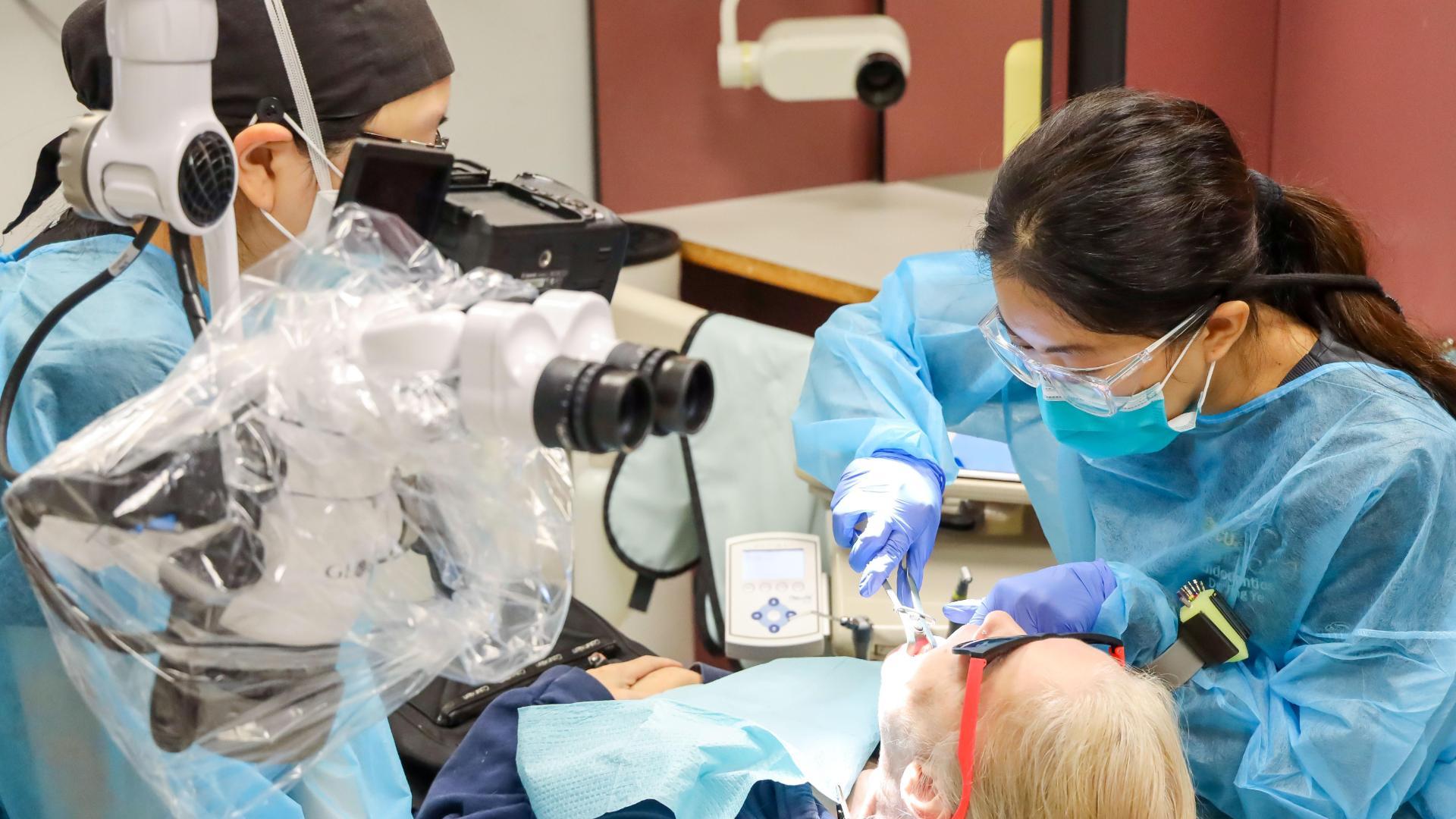Facilities and resources

The facilities of the School of Dentistry are housed in the VCU Dental Building 1, Lyons, and Perkinson Buildings and contain clinical facilities, research facilities, classrooms, student laboratories, departmental offices, and a computer learning laboratory. The laboratories and classrooms contain the latest audio-visual equipment. The Health Sciences Library is located across the street from the School of Dentistry.
The Graduate Endodontic Clinic is an eight-chair clinic housed on the second floor of the Lyons Building. Residents are assigned to and maintain their own individual operatories for the two years of the program. Each operatory is equipped with global surgical operating microscopes. Digital radiography is currently in use, and electronic health records have been implemented. A Cone-beam computed tomography systems (CBCT) unit is used jointly by the periodontic and endodontic graduate clinics. Three full-time chairside assistants staff the clinic. The Endodontic Departmental offices are located on the third floor of the Lyons Building where a resident conference room is located
Dentists with the following minimum qualifications are eligible to seek admission to the Advanced Specialty Education Program in Endodontics:
- Eligibility to obtain a Virginia temporary resident's license from the Virginia Board of Dentistry. All residents must obtain a Virginia temporary resident's license from the Virginia Board of Dentistry. Eligibility for the Virginia temporary resident's license from the Virginia Board of Dentistry is no longer dependent on graduation from a dental school accredited by the Commission on Dental Accreditation (CODA) of the American Dental Association. Therefore, graduates from CODA-approved programs as well as from foreign dental schools not approved by CODA can be considered for admission.
- Successful completion of Part I of the National Dental Boards at the time of application and successful completion of Part II by the time of matriculation.
- Minimum grade point average of 3.0 (4.0 scale) or the equivalent, or a ranking in the top 50% of their dental school class.
- Successful interview with the program director, faculty and residents.
- Three letters of recommendation plus a letter from your dental school verifying your class rank, graduation degree, etc., commonly called a "Dean's Letter." Submit these as a part of the PASS application.
All advanced dental education students are required to successfully pass a pre-matriculation drug screening test, and a background check with fingerprinting.
A selection committee consisting of the program director and three full or part-time faculty screen all applications for eligibility. Candidates are then selected for an interview based on didactic and clinical achievements, extramural experience, interpersonal skills, and references. Interviews are by invitation only.
Each year, the Department of Endodontics at VCU School of Dentistry receives numerous requests to come visit or shadow our program for the day. Unfortunately we do not have the resources to grant every request, so, with fairness in mind, we have decided not to allow program visits. Upon request, we can provide email addresses of several residents who are willing to answer specific questions about our program. We appreciate your understanding in this matter.
The Commonwealth of Virginia self-insurance program provides professional liability (malpractice) coverage, subject to policy limits, for advanced dental education students. Coverage includes professional service on duty within the institution and professional service on assigned duties in one of the affiliated hospitals or programs. It does not cover any other professional service.
Tuition and fee rates for advanced dental education students are established annually by the VCU Board of Visitors in May. For students enrolling in July 2023, after scholarship credits are applied, the costs for attendance including educational and clinical tuition and fee charges will not exceed $30,000. Tuition and fees, stipends, and scholarships are subject to change annually and are program dependent. For international students, an educational services fee also applies.
Students are required to purchase selected endodontic instruments and a number of textbooks during the program. Residents are not required to purchase an operating microscope or digital radiography sensor, as they are provided in the practice. A list of the required instruments and textbooks will be provided to successful applicants. The approximate total cost for instruments and books required during the program will not exceed $10,000.